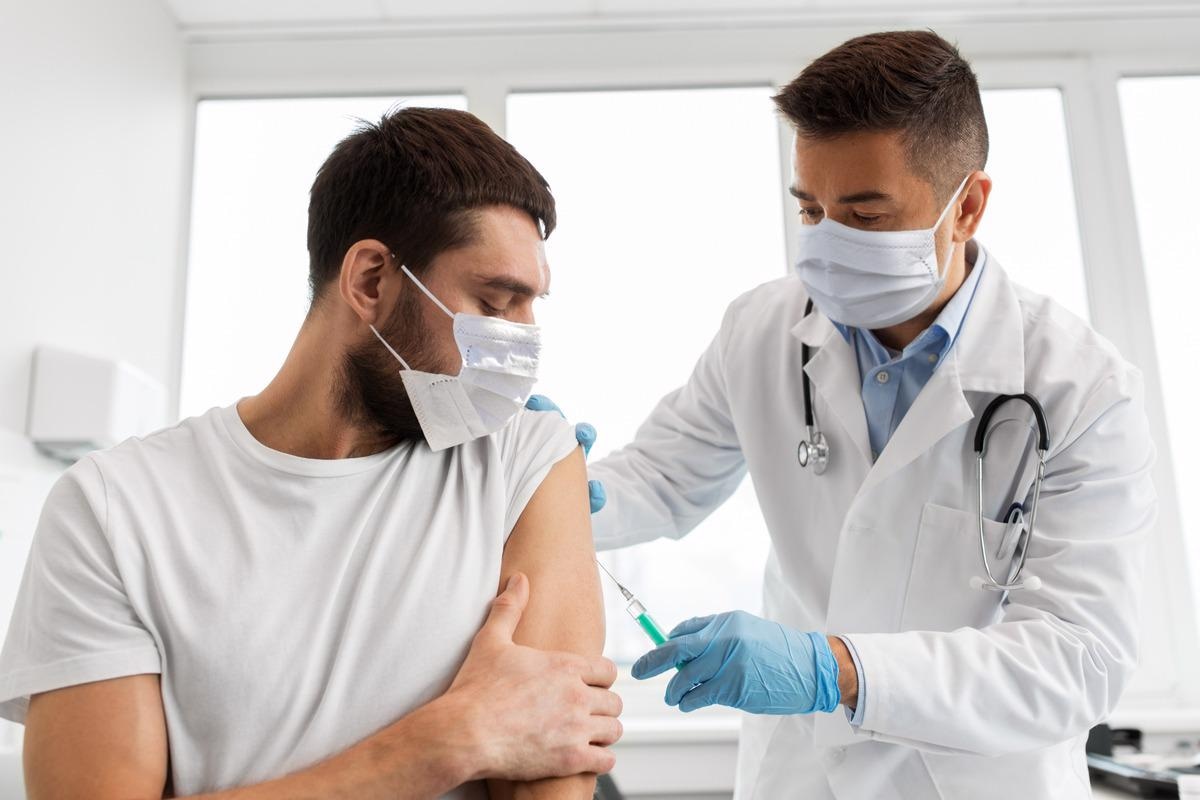Scientists from Qatar have recently studied the duration of protection provided by mRNA-based coronavirus disease 2019 (COVID-19) vaccines against symptomatic omicron infection, and associated severity and mortality.
The findings reveal that both Pfizer- and Moderna-developed mRNA vaccines provide durable protection against severe omicron infection and related death both after the second and third vaccine doses. However, the efficacy of both prime and booster vaccinations against symptomatic omicron infection gradually declines with time.
 Study: Duration of protection of BNT162b2 and mRNA-1273 COVID-19 vaccines against symptomatic SARS-CoV-2 Omicron infection in Qatar. Image Credit: Syda Productions/Shutterstock
Study: Duration of protection of BNT162b2 and mRNA-1273 COVID-19 vaccines against symptomatic SARS-CoV-2 Omicron infection in Qatar. Image Credit: Syda Productions/Shutterstock
The study is currently available on the medRxiv* preprint server, while the article undergoes peer review.

 This news article was a review of a preliminary scientific report that had not undergone peer-review at the time of publication. Since its initial publication, the scientific report has now been peer reviewed and accepted for publication in a Scientific Journal. Links to the preliminary and peer-reviewed reports are available in the Sources section at the bottom of this article. View Sources
This news article was a review of a preliminary scientific report that had not undergone peer-review at the time of publication. Since its initial publication, the scientific report has now been peer reviewed and accepted for publication in a Scientific Journal. Links to the preliminary and peer-reviewed reports are available in the Sources section at the bottom of this article. View Sources
Background
The most recently emerged omicron variant of severe acute respiratory syndrome coronavirus 2 (SARS-CoV-2) has caused an exponential rise in new COVID-19 cases worldwide. Because of significantly improved immune fitness, the variant has considerably increased the risk of breakthrough infections in both vaccinated and previously infected individuals.
In Qatar, the omicron variant has started a large wave of infections in December 2021. Currently, according to the Qatar Ministry of Public Health, 87.2% of the Qatar population have been immunized with two doses of mRNA COVID-19 vaccines developed by Pfizer/BioNTech and Moderna. The two initial doses (prime) of the Pfizer and Moderna vaccines have been administered 21 days and 28 days apart, respectively. In addition, a third booster dose has been administered to at-risk individuals around 7 months after the second vaccination.
In the current study, the scientists have evaluated the durability of protection provided by both Pfizer and Moderna vaccines against symptomatic, severe, and fatal omicron infections after the prime (first and second doses) and booster (third dose) vaccination.
The study was conducted on the total population of Qatar between December 23, 2021 and February 2, 2022. A total of 1,301,203 individuals were primed with the Pfizer vaccine, and subsequently, 301,059 individuals received the booster dose by February 2, 2022. Regarding the Moderna vaccine, about 891,810 individuals received two prime doses and 105,558 received a booster dose.
A test-negative, case-control study design was applied to assess the vaccine effectiveness.
Durability of protection by the Pfizer vaccine
The Pfizer COVID-19 vaccine showed the highest level of protection (62%) against symptomatic omicron infection in the first month post-second vaccination. However, the vaccine efficacy was reduced to less than 10% five months after the second vaccination. Although a significant induction in efficacy (55%) was observed between 2 – 5 weeks after the booster vaccination, it started declining with time afterward.
Regarding protection against severe and fatal omicron infections, the Pfizer vaccine showed more than 70% and 90% efficacy after the second dose and booster dose, respectively. Importantly, no reduction in efficacy was observed with time.
Durability of protection by the Moderna vaccine
The Moderna COVID-19 vaccine showed the highest level of protection (45%) against symptomatic omicron infection during the first three months post-second vaccination. Afterward, a gradual reduction in vaccine efficacy was observed with time. The protective efficacy again reached a peak level of about 55% between two to five weeks post-booster vaccination, followed by a gradual decline.
Regarding protection against severe and fatal omicron infections, the Moderna vaccine showed more than 60% and 80% efficacy after the second dose and booster dose, respectively.
Study significance
The study demonstrates that both Pfizer and Moderna COVID-19 vaccines provide a comparable level of protection against symptomatic omicron infection only for a short period of time after the second vaccination. Although the booster vaccination can retrieve vaccine efficacy, it fails to provide durable protection against symptomatic infection.
Importantly, both vaccines can provide considerably high and durable protection against severe and fatal infections both after the second and booster vaccination.
Limitations
As mentioned by the scientists, the findings of the study might not be extrapolated to other countries as most of the Qatar population are young adults aged less than 50 years.
In addition, only a small fraction of the Qatar population with severe comorbidities had been prioritized for the vaccination at the initial phase. Thus, the study findings might not conclusively justify the effect of age and comorbidities on declining vaccine efficacy.

 This news article was a review of a preliminary scientific report that had not undergone peer-review at the time of publication. Since its initial publication, the scientific report has now been peer reviewed and accepted for publication in a Scientific Journal. Links to the preliminary and peer-reviewed reports are available in the Sources section at the bottom of this article. View Sources
This news article was a review of a preliminary scientific report that had not undergone peer-review at the time of publication. Since its initial publication, the scientific report has now been peer reviewed and accepted for publication in a Scientific Journal. Links to the preliminary and peer-reviewed reports are available in the Sources section at the bottom of this article. View Sources